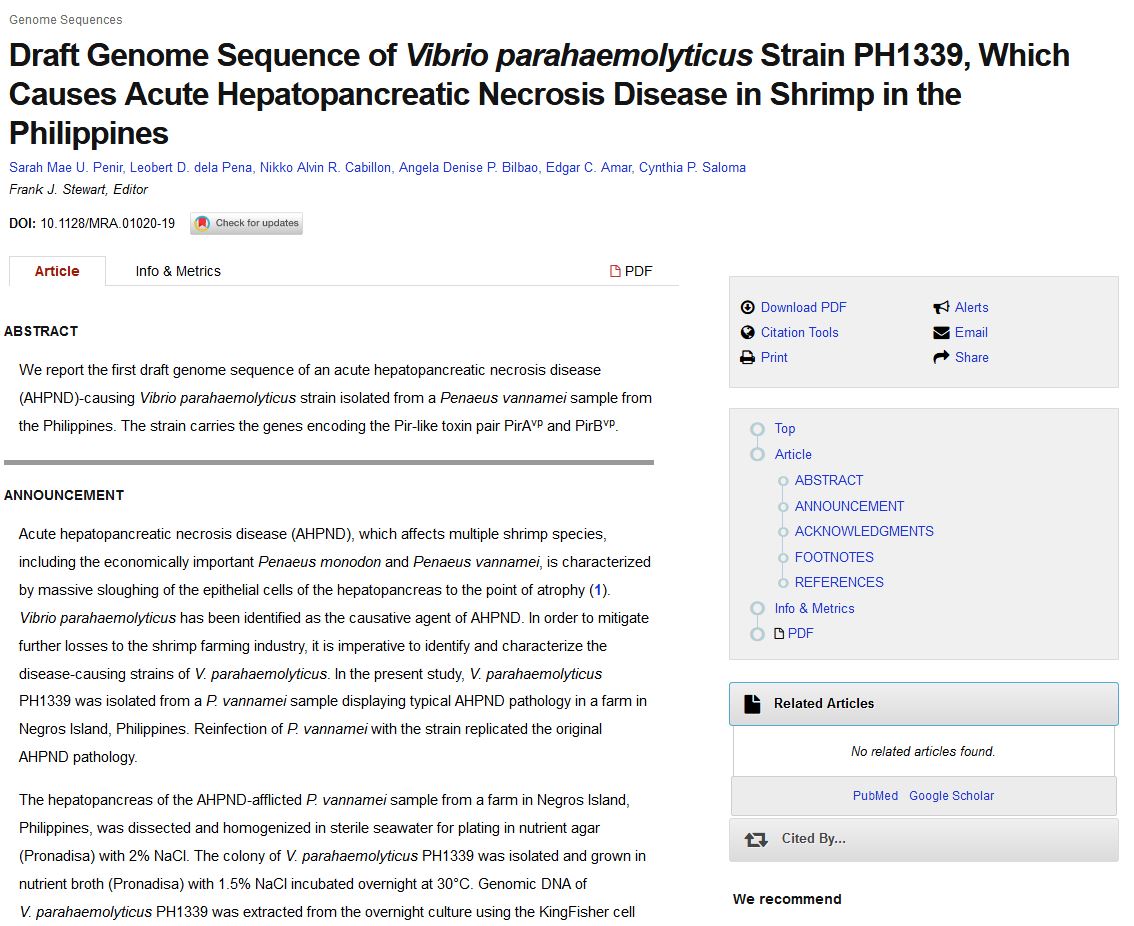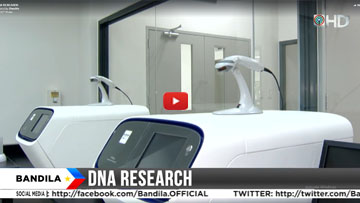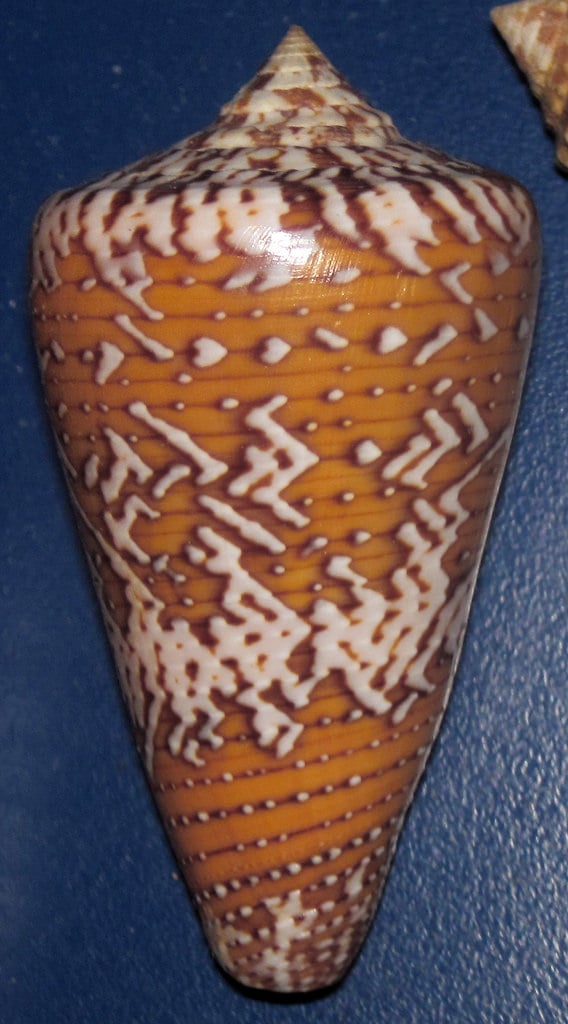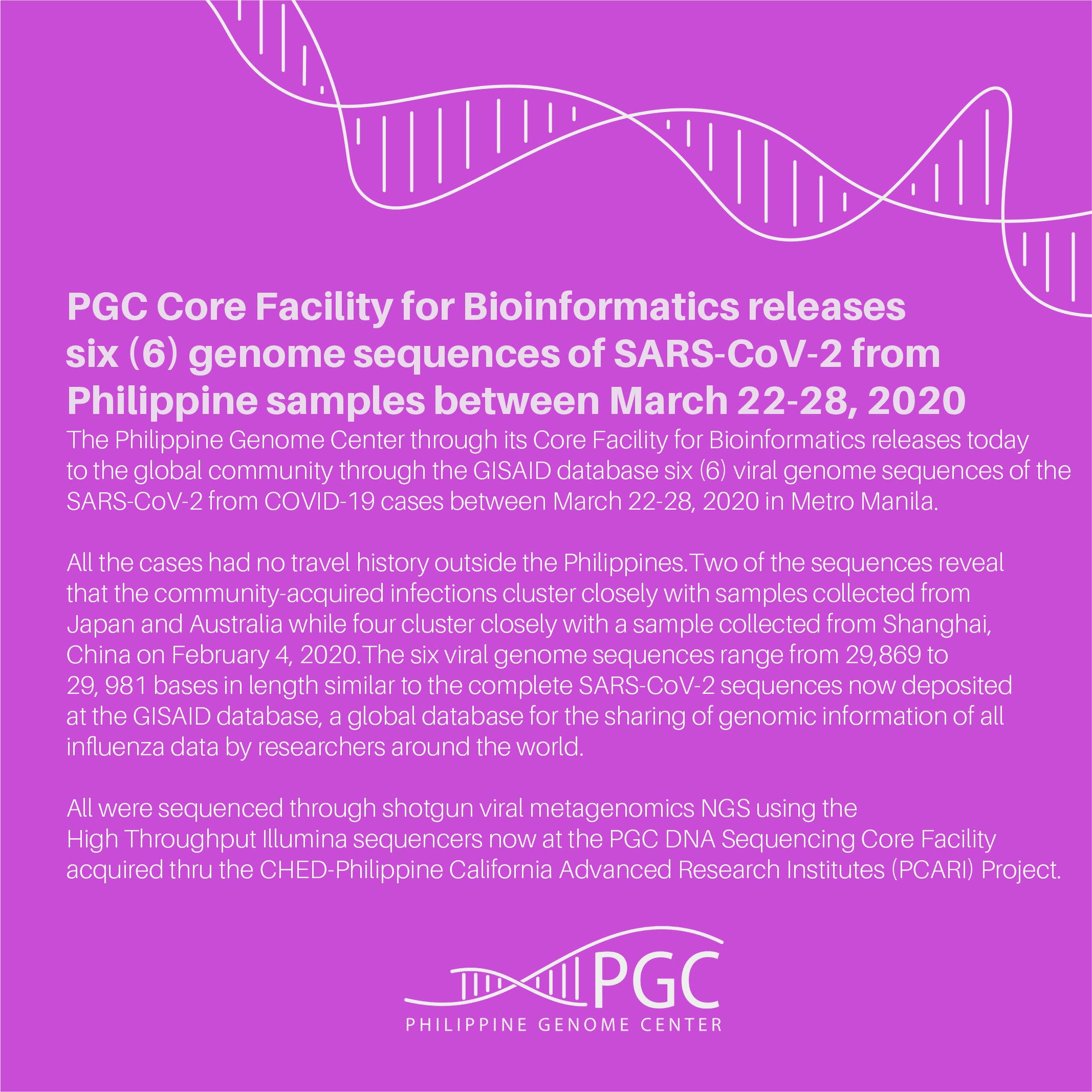The Philippine Genome Center (PGC) thru its Core Facility for Bioinformatics (CFB) releases today to the global community through the GISAID database six (6) genomes of the SARS-CoV-2 sequences from Philippine samples taken in Metro Manila between 26 to 28 March 2020.

Draft Genome Sequence of Multidrug-Resistant Vibrio parahaemolyticus Strain PH698, Infecting Penaeid Shrimp in the Philippines
The emergence of multidrug-resistant bacterial strains in diverse settings has been reported globally. In the Philippine shrimp aquaculture industry, antibiotics are used for the treatment of bacterial diseases during the production cycle. We report the draft genome of Vibrio parahaemolyticus PH698, a multidrug-resistant strain isolated from a Philippine shrimp farm.

Draft Genome Sequence of Vibrio parahaemolyticus Strain PH1339, Which Causes Acute Hepatopancreatic Necrosis Disease in Shrimp in the Philippines
Acute hepatopancreatic necrosis disease (AHPND), which affects multiple shrimp species, including the economically important Penaeus monodon and Penaeus vannamei, is characterized by massive sloughing of the epithelial cells of the hepatopancreas to the point of atrophy (1).

PGC as a DNA Sequencing and Bioinformatics Service Facility
The above video is a news coverage by Bandila, ABS-CBN News

High conopeptide diversity in Conus tribblei revealed through analysis of venom duct transcriptome using two high-throughput sequencing platforms
Barghi N, Concepcion G.P., Olivera B.M., Lluisma A.O.
The venom of each species of Conus contains different kinds of pharmacologically active peptides which are mostly unique to that species.

Genomic Research in the Era of Next Generation Genotyping and Sequencing
PGC hosted a bioinformatics workshop entitled ‘Conducting Genomic Research in the Era of Next Generation Genotyping and Sequencing’ last March 20-22, 2012 at the National Institute of Molecular Biology & Biotechnology (NIMBB) and the Computer Science Research Center (CSRC) in UP Diliman.

